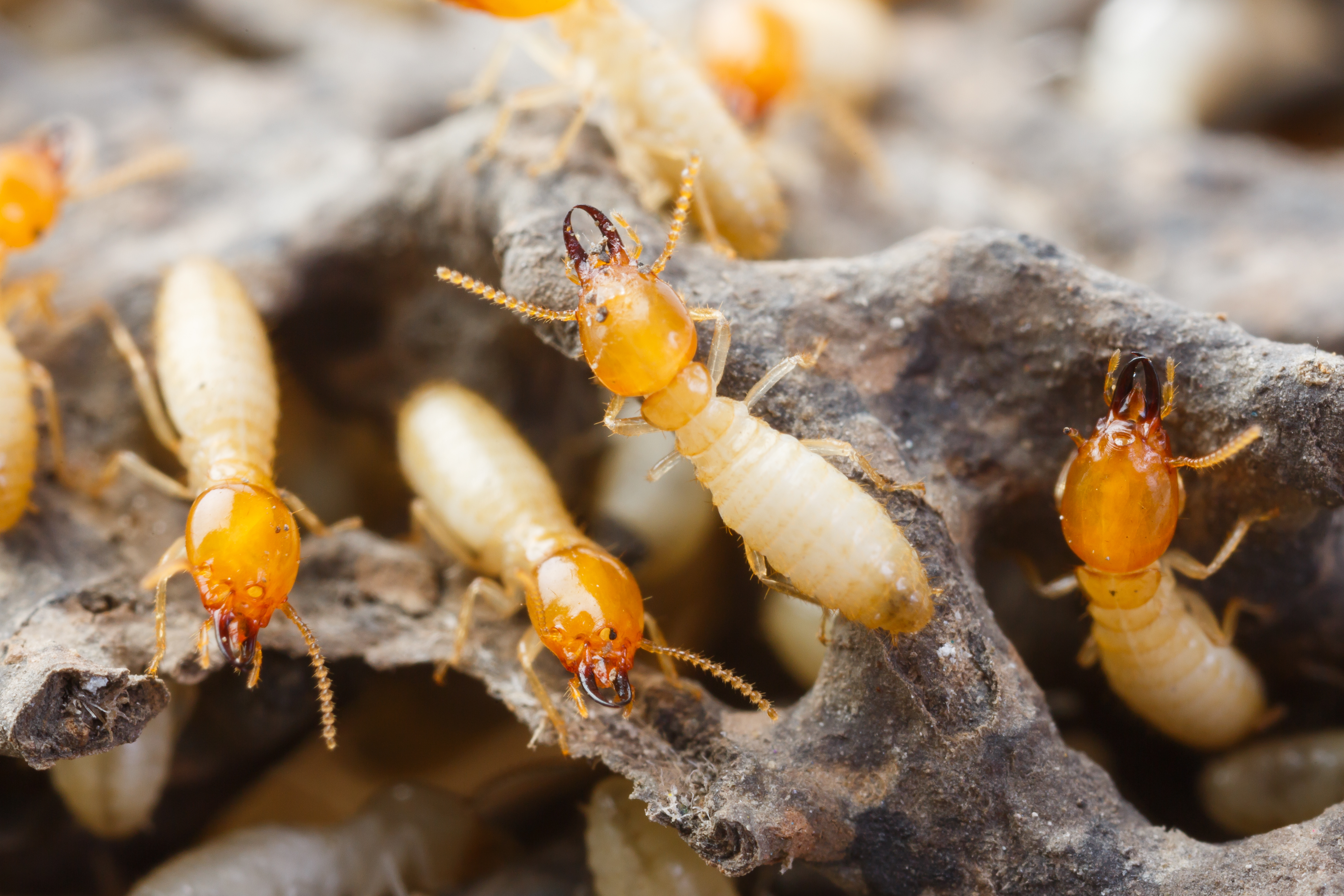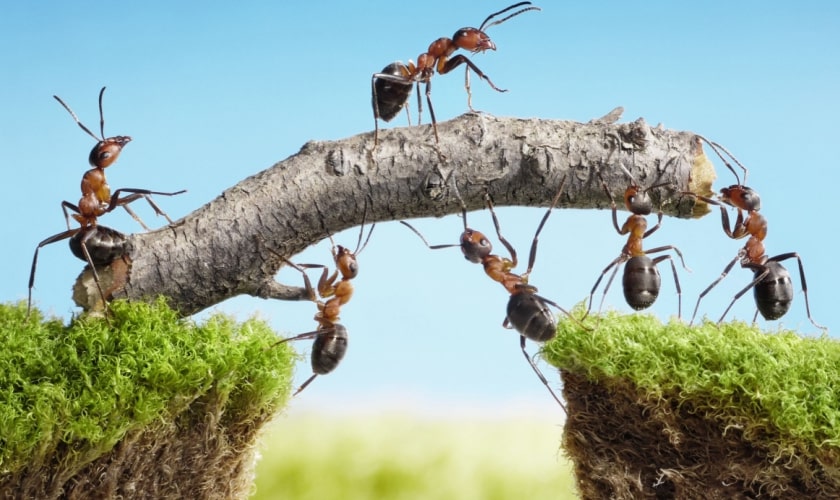Complete Ant Control: Methods and Services to Defeat Ant Issues
Complete Ant Control: Methods and Services to Defeat Ant Issues
Blog Article
Ecological Influence of Pest Control: Balancing Effectiveness With Sustainability
The environmental influence of parasite control is an essential concern that calls for a delicate equilibrium in between achieving performance in handling parasites and guaranteeing sustainability of our environments. From the use of unsafe chemicals that leak into our dirt and water to the unplanned effects on non-target species, the effects of conventional bug control methods are far-reaching.
Dangerous Chemicals in Pest Control
The use of damaging chemicals in parasite control positions significant environmental and health and wellness threats that warrant cautious factor to consider and mitigation methods. Chemicals, herbicides, and pesticides are generally utilized to eradicate parasites, yet their extensive application can lead to unplanned repercussions. These chemicals can infect soil, water sources, and the air, influencing not just the targeted parasites however additionally valuable insects, wild animals, and human beings.

To address these risks, incorporated parasite administration (IPM) techniques are being promoted as a more sustainable option. IPM entails a mix of methods such as organic control, environment adjustment, and the targeted use of chemicals as a last resource (ant control albemarle nc). By embracing an all natural approach to pest control, we can reduce the ecological and health effects related to hazardous chemicals while properly taking care of pest populations
Influence On Non-Target Types
Considering the unexpected effects of bug control methods, the effect on non-target types is an essential element that calls for detailed analysis. While insect control actions aim to target details pests, other organisms in the community might be inadvertently impacted. Non-target varieties, including valuable insects, birds, mammals, and even plants, can experience straight or indirect injury from pesticide applications or organic control techniques.
Pesticides made to deal with a particular bug pest may damage pollinators like or all-natural predators such as ladybugs. Biological control agents, if not species-specific, can pose threats to unintended targets, interfering with the environmental balance.
To reduce the influence on non-target varieties, integrated bug administration (IPM) methods that emphasize an all natural strategy to pest control are recommended. These methods prioritize using eco-friendly techniques, reducing injury to advantageous microorganisms while properly handling pest populations. Carrying out extensive threat evaluations and keeping an eye on the results of insect control initiatives are crucial steps in securing non-target varieties and advertising total ecosystem wellness.
Dirt and Water Contamination
Unplanned ecological effects of insect control techniques prolong past influencing non-target varieties, with substantial effects for dirt and water contamination. Pesticides, herbicides, and chemical fertilizers used in pest control can seep into the dirt and pollute groundwater, positioning a risk to both terrestrial and marine ecological communities. Soil contamination can disrupt the balance of microorganisms necessary for nutrition biking and plant development, causing reduced soil fertility and productivity. These chemicals can continue in the setting for extensive durations, building up in the dirt and possibly getting in the food chain.
Water contamination is an additional essential problem connected with insect control techniques. To reduce soil and water contamination from insect control tasks, incorporated parasite management strategies that prioritize sustainability and reduce chemical inputs are crucial.
Air Air Pollution From Pesticide Use
Direct exposure to air-borne chemicals throughout agricultural applications positions a considerable issue for air contamination control procedures. When pesticides are splashed onto crops, they can volatilize into the air and kind unstable natural compounds (VOCs) and various other air-borne contaminants. These chemicals can contribute to the development of ground-level ozone, a significant part of smoke that can have detrimental results on human health and wellness, crop performance, and general air quality. Furthermore, chemical drift, where pesticides are lugged by the wind to unintended locations, can cause the contamination of nearby ecological communities and water bodies.

Approaches for Sustainable Insect Control
In the world of farming practices, carrying out lasting bug control approaches is critical for preserving environmental equilibrium and guarding plant returns. Lasting pest control emphasizes using eco-friendly approaches to manage insect populations properly while reducing damage to non-target organisms and ecological communities. Integrated Parasite Monitoring (IPM) is a widely adopted approach that combines biological, cultural, physical, and chemical control methods to accomplish long-lasting bug administration options.
Plant rotation and diversification are also efficient techniques to disrupt pest life cycles and produce less favorable problems for pests to prosper. Ultimately, by incorporating these sustainable pest control methods, farmers can attain a balance in between pest administration performance and environmental stewardship.
Conclusion
To conclude, the environmental influence of pest control approaches have to be meticulously considered to stabilize efficiency with sustainability. Dangerous chemicals utilized in bug control can lead to soil and water contamination, air contamination, and injury non-target species - termite control services. It is important to implement sustainable insect control approaches to minimize these negative effects on the atmosphere and promote a healthier ecological community for future generations
By adopting a holistic method to pest control, we can lessen the ecological and wellness influences linked with hazardous chemicals while efficiently handling pest populations.

To alleviate the air pollution triggered by chemical use, it is necessary to embrace incorporated insect administration strategies that prioritize the usage of non-chemical pest control techniques, such as plant rotation, natural killers, and immune crop ranges. Lasting pest control highlights the usage of environmentally friendly approaches to manage bug populaces efficiently while minimizing damage click for source to non-target microorganisms and ecosystems. Integrated Insect Monitoring (IPM) is a commonly taken on method that integrates organic, social, physical, and chemical control approaches to achieve long-term bug monitoring remedies.
Report this page